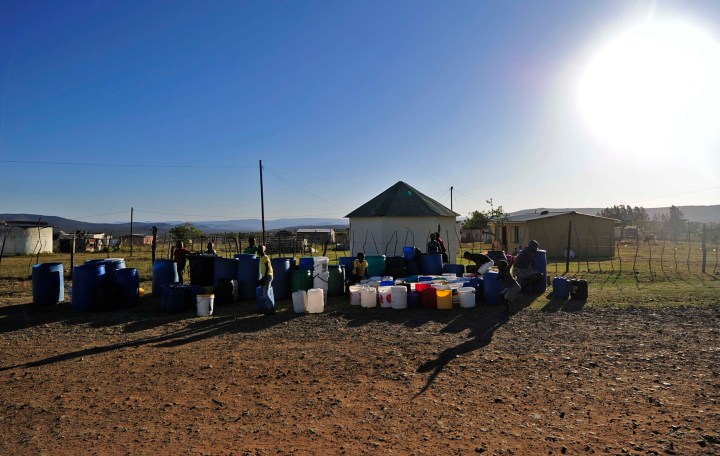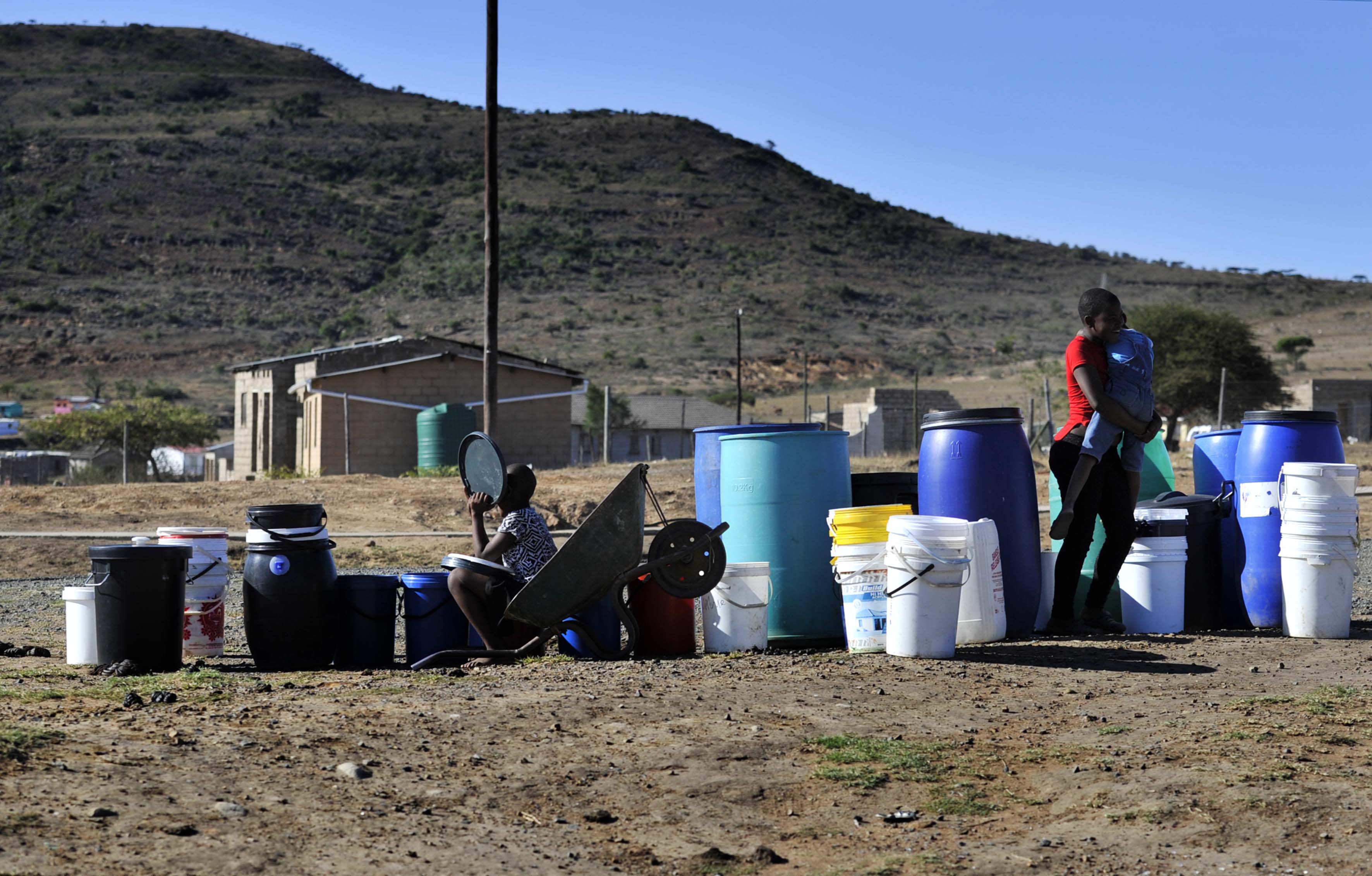GRASSROOTS ACTIVISM OP-ED
Putting communities at the centre of climate change solutions

Communities and community activists have a high knowledge of climate change and are deeply concerned about its impact – particularly on the poor – and of the importance of ensuring that their views are not marginalised.
Community activists are looking for more ways to become involved in national conversations about climate change, and are keen to better understand the problems and be part of co-creating solutions.
This has emerged from a series of community focus groups undertaken by Mobilize, which has developed out of the Covid Comms public education campaign run between 2020 and 2022
Read in Daily Maverick: Covid Comms, its volunteers and its achievements a rare good news Covid-19 story
Mobilize has launched two new campaigns since Covid Comms – Energy Comms, which aims to build public understanding of the energy crisis; and Climate Comms, which was launched at the beginning of 2024 to build community involvement in climate change conversations.
As with all its campaigns, Mobilize began by assessing understanding of the issue in communities, to inform the role and character of its communications interventions.
Community facilitators – who conducted vaccine awareness workshops during the pandemic and have now been upskilled to do community research on a range of subjects – conducted focus groups in five provinces during the early part of this year, targeting peri-urban and peri-rural areas in Gauteng, Limpopo, Mpumalanga, Free State and KZN.
Deep understanding
What they found was a deep level of understanding of the climate crisis, a desire to know more, and in particular a healthy appetite to play a part in finding future solutions.
They have creative ideas, they are keen to organise and mobilise, and they see this process as part of a broader project to close the gap between those who make government policy and those who have to deal with its consequences.

Residents of kwaDenge wait for water in Nongoma, KwaZulu-Natal. (Photo: Gallo Images / City Press / Tebogo Letsie)
There’s no denying that South Africa’s climate change activist community is already vast and diverse.
Through its work, Mobilize aims to serve this ecosystem by identifying some of the key issues that are of concern to people in marginalised communities, in particular, and mainstreaming these so that as many people as possible have a say in climate change solutions.
As part of this, Mobilize is catalysing community conversations around the impact of climate change and the future shape and form of climate change interventions.
Based on what Mobilize has already heard, it is clear that communities and community activists have a high knowledge of climate change and are deeply concerned about its impact – particularly on the poor – and the importance of ensuring that their views are not marginalised.
Enthusiasm
There is an enthusiasm for involvement, and an appetite to make a real difference.
This could take place at different levels, according to the Mobilize research: some communities are, for example, considering environmental “neighbourhood watches” to monitor pollution, deal with illegal dumping (whether by families or corporates) and look at alternative sources of energy for cooking, light and warmth.
As one participant in the focus groups put it: “The suburbs have already got neighbourhood watch, and it’s not just for the houses – it’s for the whole environment. We also need something in the townships whereby we can just say to each and every section: let’s appoint a team that can actually take care of the whole township and make sure that it is clean by all means.
“Maybe if we can make them pay money as a penalty, but at least if there is some form of neighbourhood watch. That’s one way in which we can account ourselves as a community.”
Poverty and climate change
The challenge is massive, and the link between climate change and poverty is profound.
In all the Mobilize focus groups, participants made it clear that poor and marginalised communities have no choice but to inadvertently contribute to global warming in their struggle to stay alive.
Energy-efficient energy solutions, like reliable energy itself, are often far beyond their reach.
Granted, their contribution to a warmer plant is nothing like the scale of animal methane, private jets, industrial emissions or coal-fired power stations. But poor people, without access to resources, feel trapped in a vicious circle in which they are inadvertently contributing to a warmer planet.
With electricity supply erratic or non-existent, they have to find their own sources of fuel and energy. In some cases, entrepreneurs have resorted to selling firewood to make a living. Increasingly, families are having to turn to burning their own fuel to provide warmth and energy for cooking.
As a result, entire woodlands are being chopped down – robbing the planet of the “cleansing” role that trees play in removing carbon dioxide from the air, and in releasing oxygen. And, when the wood is burnt to cook food, stay warm or provide light, it produces a laundry list of other pollutants, including carbon monoxide.
It’s not just wood that’s being burnt. According to Mobilize’s research, even communities with electricity are being forced to explore alternative energy sources including burning plastic and other toxic materials for heating and cooking because of extended power cuts.
Rubbish is being burnt regardless of its toxicity because it’s the only fuel source available.
Extreme weather
Climate change affects poor communities directly in other ways, too.
Because of poor infrastructure, shoddy housing and general neglect by government, these communities are harder hit by floods and other forms of inclement weather.
Many said they knew someone in their networks who is or has been affected by climate change, and many have been left in devastating situations – including the loss of their homes and in some cases livelihoods due to damage to factories or firms they work in, cattle being swept away by floods, and crops dying due to extremely dry and hot temperatures or from drowning due to too much rain.
They say there have been increasing health issues, primarily respiratory illnesses due to air pollution including asthma and tuberculosis caused by factories and mining within their communities.
Disease
Participants believe the climate crisis causes more diseases in their communities, including cancers of the lungs and the skin, as well as eyesight issues.
The participants added that climate change is also tangible through the rise in food prices. This is because it takes more time and resources to ensure that food is supplied instead of the natural ways of growing crops and distributing them across the country.
As one focus group participant put it: “When we plant our own food, and expect good harvest for maize, pumpkins and whatever, then the heatwave comes, and it affects the crops. Meaning that we will starve.”
Overall, participants in the focus groups argued that community members must hold each other accountable for their contribution to the climate crisis – because climate change does not occur outside of them.
Another focus group participant said: “We need to get to a point where we as the community must structure ourselves – and be organised.”
But policymakers and government have to come to the party, too.
One thing is sure: policymakers developing responses to South Africa’s climate crisis would be well advised to understand the direct link between poverty and climate change in many poor and rural communities.
If they don’t, those communities will ensure they do. DM
Chris Vick is chairperson of Mobilize.



















Comments - Please login in order to comment.